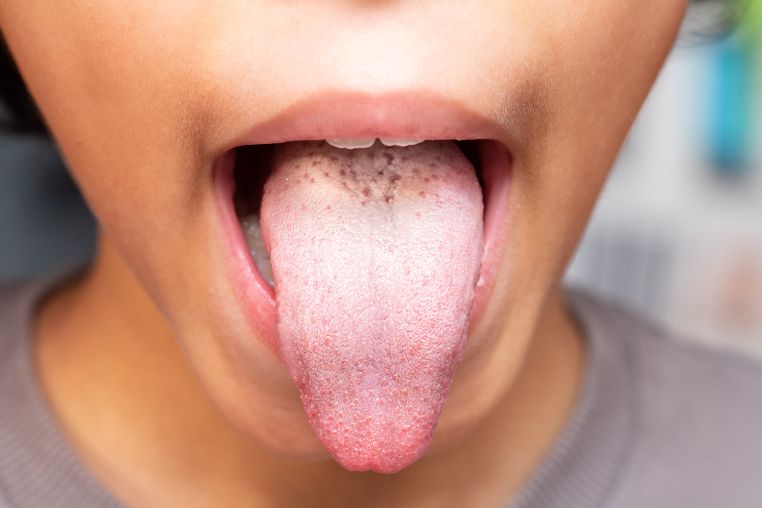Noticing that your tongue has changed its color can be a stressful experience if you don't know what is the cause of the discoloration. Changes in the color of your tongue can be subtle or dramatic, depending on the underlying health issue. In this article, we will describe some of the most common discolorations so you can get a general idea of what caused the change before visiting your dentist.
Pink tongue
You probably don't have any underlying health issues if your tongue is pink since this is the color of a healthy tongue.
White tongue
When the surface of your tongue is white it can mean that you have a fungal infection, oral thrush, or leukoplakia.
Black tongue
The black tongue can manifest as a reaction to certain medications, like antacids. It’s not a serious issue and should go away on its own after you stop taking the medicine.
Brown tongue
This can be caused by various things like drinking coffee, smoking, medications, and poor oral hygiene. A hairy tongue can also be the cause of your tongue turning brown.
Yellow tongue
A tongue can turn yellow if you have a buildup of bacteria, liver problems, or jaundice.
Blue/Purple tongue
This type of discoloration can be caused by poor circulation or low oxygen levels in the blood.
Red tongue
The cause of the red tongue can be a deficiency of vitamin B12 or iron, an infection, or a heart condition.

The surface of your tongue is covered with small nodules called papillae. While a healthy tongue sheds and regenerates, some health issues can cause it to stop doing that, which in turn causes bacteria to become trapped. This buildup of bacteria can cause your tongue to change its color to brown.
Also, smoking, drinking too much coffee or tea, and neglecting your oral hygiene can be the cause of a brown tongue. If the condition isn't treated the papillae can get enlarged and cause your tongue to turn black and get a hairy appearance called a black hairy tongue.
The brown tongue is usually not that serious of a condition, and in most cases can be treated on your own. First of all, good oral hygiene must be practiced regularly. Get a toothbrush with a tongue and cheek cleaner, and every time you brush your teeth make sure you wash your tongue as well. If you are using regular mouthwash, check with your dentist to make sure that it doesn't irritate your tongue even further.
Rinsing your mouth with antimicrobial mouthwash or warm salty water can reduce the growth of bacteria on the tongue.
Changes in your diet and habits might be necessary as well. If you are a coffee drinker you should drink less. If you are a smoker it might be a good time to cut down on cigarettes drastically or even stop completely. Make sure to drink plenty of water and change to a healthier more balanced diet.
Changes in the color of your tongue usually aren't a cause for alarm and can be prevented with simple changes in your lifestyle. Regularly brush your tongue when you are brushing your teeth, and use mouthwash to rinse out the bacteria. Cut down on coffee and foods that can cause discoloration of your tongue as much as you can. Tobacco is one of the biggest enemies of your teeth and your tongue, and if you are a smoker, it’s never a bad time to quit. Drinking plenty of water and keeping a healthy diet can also greatly reduce the risk of tongue discoloration.
Even though most of the time a brown tongue won't mean that you have a serious health issue, if the problem persists don't ignore it and wait for your health to worsen, instead seek help from a dental professional to resolve the issue as soon as possible.

